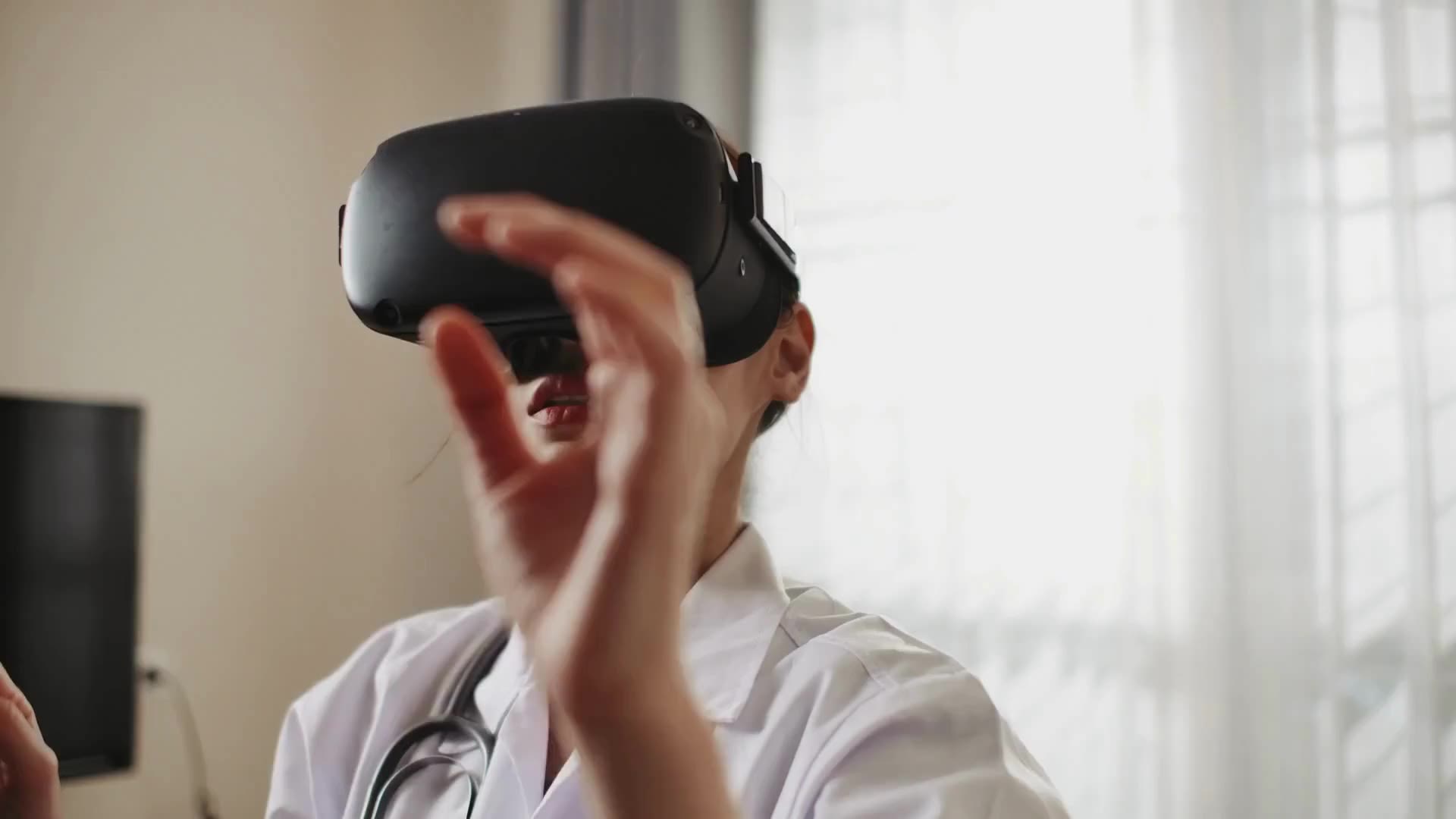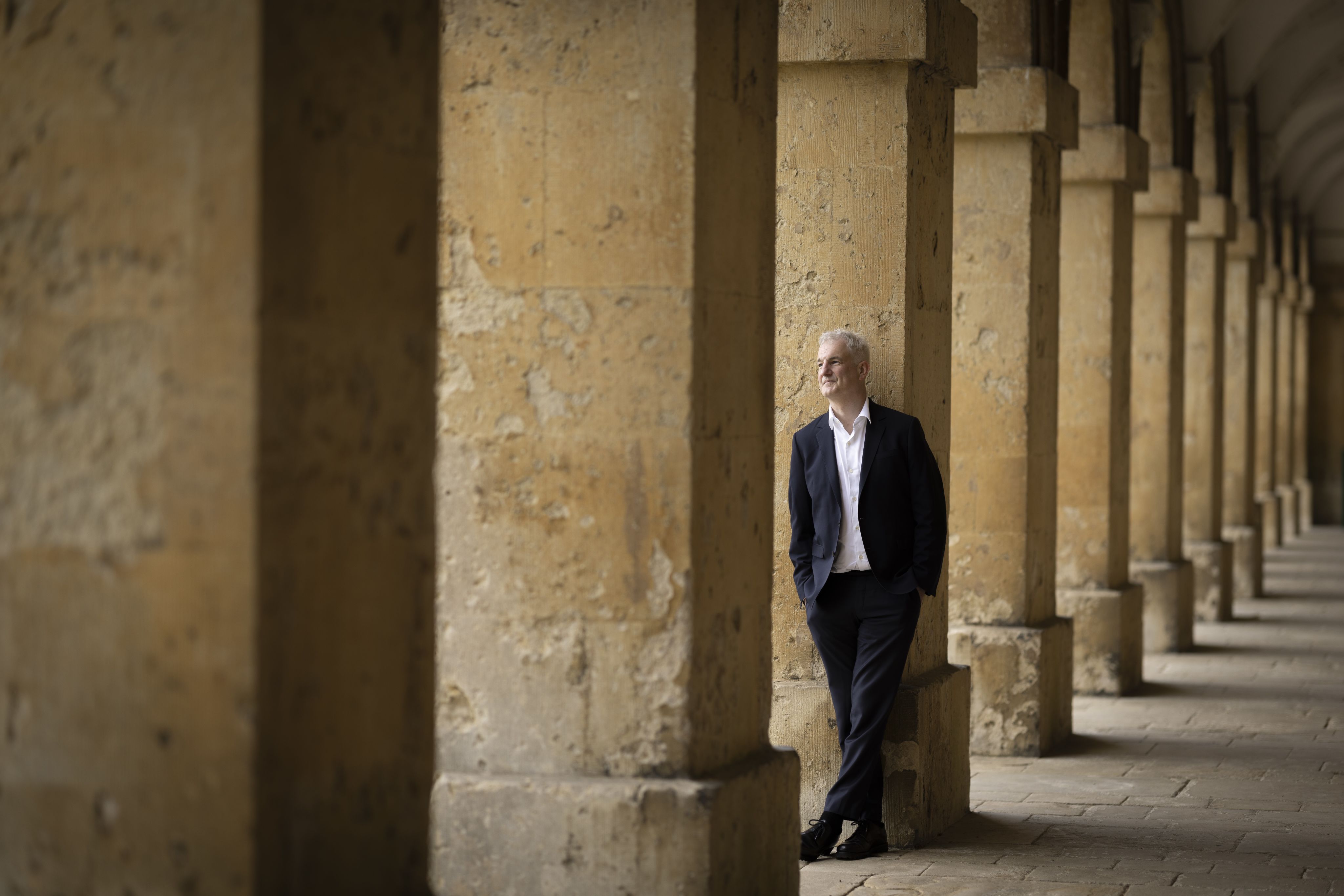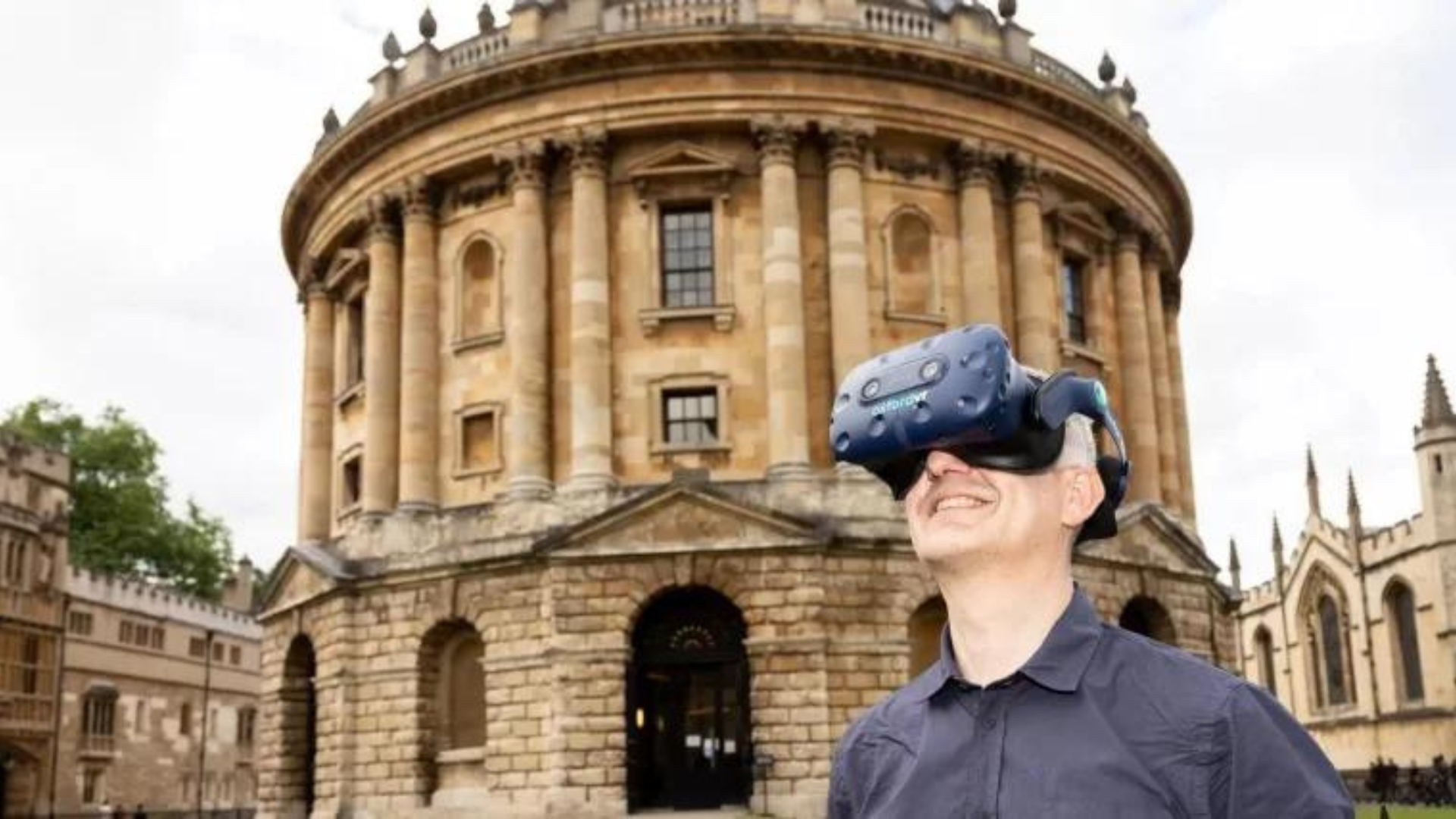Bridging the gap between science and therapy

Imagine a world where you had the power to control the things you fear - where you could face them on your own terms or learn to overcome them.
It is just such a world that clinical psychologist and researcher, Professor Daniel Freeman, is working to create.
Professor Freeman is at the forefront of revolutionising mental health treatments through the innovative use of virtual reality (VR).
With a passion for improving patient outcomes and a deep understanding of the intersection between psychological and physical health, he has dedicated his career to developing cutting-edge therapies that harness the power of VR to treat a range of mental health conditions.
The gameChange VR program, which is now available to patients through the NHS, was developed in partnership with health and industry experts including Professor Freeman’s University spin-out company: OxfordVR.
It targets a problem that is common in people diagnosed with psychosis, which is intense fears about everyday situations.
Virtual therapy made real - how mental health treatments are being extended with virtual reality
Virtual therapy made real - how mental health treatments are being extended with virtual reality
‘For many patients simple fears about everyday situations can develop into a severe agoraphobia, which leaves them trapped in their own homes,’
Professor Freeman explains:
‘This has a huge impact on every aspect of a person’s life, from relationships with family and friends, to their education or work careers.’
‘gameChange was designed to treat this agoraphobia and help patients re-engage with day-to-day activities and back in the world outside.’

Professor Freeman's journey into the realm of VR began with a simple goal: to help people struggling with mental health problems achieve better outcomes.
He believes that integrating psychological therapy with a comprehensive understanding of the underlying physical and mental health issues is key to achieving this.
By leveraging the best practices in Psychological Science and delivering them in a more engaging and immersive way, he aims to transform the landscape of mental health treatment.
‘I want people with mental health problems to do better, and the first thing I always think about with new treatments is ‘how will it affect a person’,’ Professor Freeman says.
‘I fell in love with clinical psychology at an early stage in my career because of the opportunity to create new therapies and test them to make sure that they work – it’s an extremely powerful discipline because of the profound impact mental health has on every aspect of people’s lives.’
One of Professor Freeman's landmark achievements is the development of the 'Feeling Safe' program, a face-to-face therapy designed specifically for individuals experiencing persecutory delusions.
Through extensive research and rigorous testing, he and his team have crafted a highly effective psychological therapy for delusions, resulting in significant improvements and even recovery for half of their patients.
‘Feeling Safe is a way to counteract and supersede people’s memories of danger by helping the person to relearn that they are safe,’ Professor Freeman explains.
‘By first tackling the key maintenance factors, such as helping people to worry less, sleep better, and feel more self-confident, they can then move to spending time in the feared situations with their defences lowered, fully engaged in the moment and experience, and learning that they are truly safe.’

Professor Freeman has also explored the therapeutic potential of VR in addressing other mental health conditions, such as developing an automated VR treatment for people with a fear of needles.
Recognising VR as a medium that can enhance the effectiveness of psychological therapies, he has embarked on projects aimed at automating the delivery of these therapies.
By making psychological treatments more accessible and convenient, he hopes to reach a wider population and address the pressing issue of limited access to psychological therapies.
‘The beauty of using virtual treatments is that you can do things that you couldn’t in person’
Professor Freeman explains, ‘and when delivery can be automated you can create a valuable resource that is accessible to people everywhere, getting psychological therapies to people everywhere.’
One area that he is particularly concerned about is the improvement of access to psychological therapies, especially for individuals with psychosis.
He believes that everyone should have access to effective treatments and aims to replicate the success achieved in areas like anxiety and eating disorders, where researchers at Oxford in particular have made significant strides in increasing support and access.

Professor Freeman's dedication to advancing mental health treatments has led him to explore various research avenues.
In addition to his focus on psychosis, he has also delved into areas such as distressing voices, grandiose delusions, and rebuilding self-confidence in individuals with severe mental health problems.
Through his research and innovation, he strives to provide holistic and evidence-based treatments that address the diverse needs of patients.
‘We did a lot of work on paranoia during the pandemic, looking at issues around mistrust of science and medicine, and how this leads to issues such as vaccine hesitancy’
Professor Freeman explains, ‘I think there's always been a baseline of distrust across the population, but I was I was shocked during the pandemic at the level of conspiracy beliefs that appeared around Covid.’
December 2020: Professor Freeman talks about COVID-19 vaccine hesitancy in the UK

What sets Professor Freeman apart is his commitment to involving individuals with lived experience in shaping his research and treatment approaches.
Recognising the value of their insights, he actively collaborates with them, incorporating their perspectives at every stage of his projects.
By embracing this collaborative approach, he believes that his research becomes more patient-centred and ultimately leads to better treatment outcomes.

Image: Jason Alden/Wellcome Trust
Image: Jason Alden/Wellcome Trust
‘All of the innovations we’ve developed have really come out of clinical practice,’ Professor Freeman says.
‘Our work is increasingly guided by the involvement of people and their lived experience.’
‘It both helps guide and inform our work, and that’s something that has increased across mental health field in general in recent years.’
‘Patient consultation at every stage of development leads to higher quality work and more successful trials, because we've anticipated many of the issues that are going to come up.’
The impact of his work has been profound. Patients who have exhausted other treatment options have found solace and success in his VR therapies.
By combining the latest advancements in technology with empathetic and evidence-based care, Professor Freeman has ushered in a new era of mental health treatment that holds promise for millions of individuals worldwide.
His pioneering work at the intersection of psychology, technology, and patient-centred care has the potential to reshape the landscape of mental health treatments.




